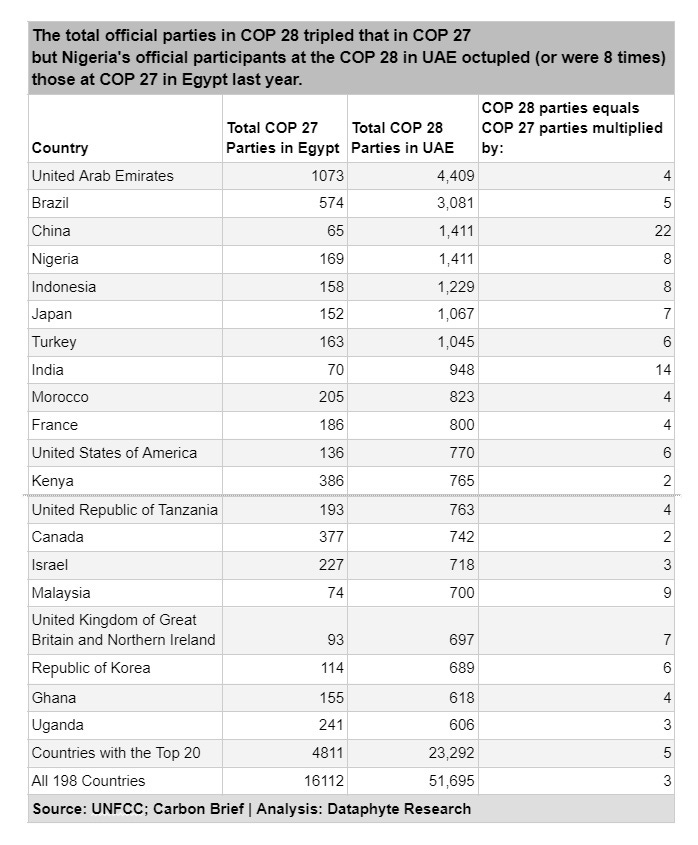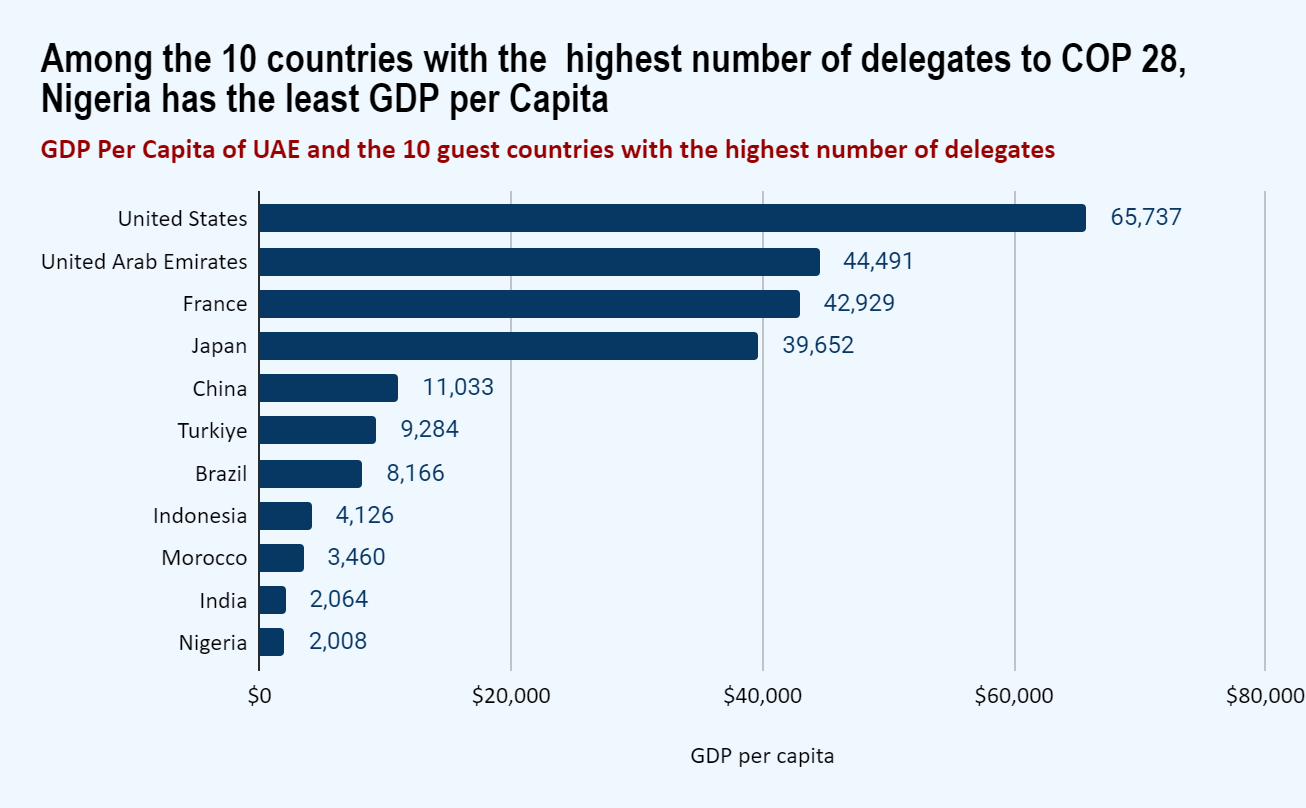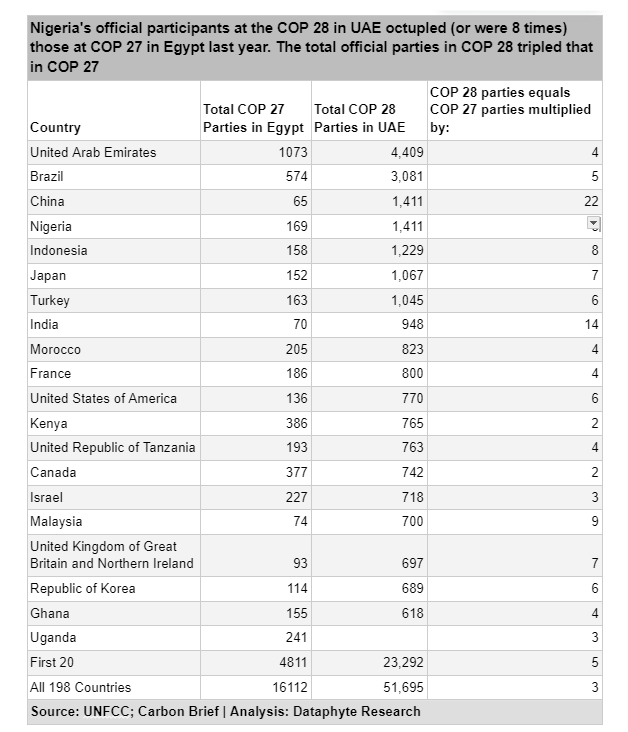COP 28: Middle Ease in the Middle East
Of Nigeria’s Irrestrainable Tourists and UAE’s Irresistible Tourism
Home to the Arab race and the three Abrahamic religions, Judaism, Christianity, and Islam, the Middle East is the world’s destination of holy tourists and a depot of holy terrorists.
The Middle East knows much unease even though it comprises a group of racially and religiously homogenous nations. Yet, one country has positioned itself as the middling centre of ease in the region - the United Arab Emirates (UAE).
There has never been peace everywhere in the world. It’s only that the conflicts in the region sections the Foreign policy of the United Nations into two halves - those on the side of the Arabs and those on the side of their Jewish neighbour.
The UAE currently plays a vital role in mediating the multilateral diplomacy surrounding the ongoing Israel-Hamas war.
Together with its Arab neighbours, it helped negotiate the first ceasefire that facilitated Hamas's release of hostages held in Gaza and Israel’s release of prisoners it held for various alleged infractions.
UAE’s credentials for peace and ease of doing reason, race and religion have made it the centre of global business and tourism in the Middle East.
Little wonder the Emirates attracted the largest delegation of parties in history to this year’s 28th Conference of Parties (COP 28) in its chief city, Dubai.
Nigeria’s Irrestrainable Tourists
Nigeria’s plenteous delegation to COP 28 almost robbed us of the value of the conference to the country. Many feel this was simply a show of fiscal immodesty and irresponsible leadership at various levels of government.
Could it be that those who criticise the outsized delegation do so because they were left out of the Dubai free party?
While countries like Canada only doubled their official delegates last year now in Dubai, Nigeria sponsored over eight times the number last year.
It’s easy to point to countries like China that sponsored over 22 times the last year’s delegates to Dubai. But which among these countries is Nigeria’s pair in wealth and citizen wellbeing?
A Dataphyte review shows that “among the top eleven countries (including the host) with the most delegates, Nigeria has the lowest GDP per Capita.
“Morocco, the only African country in the top eleven countries with the highest delegation aside from Nigeria, has a GDP of $3460.
“Further review also shows that of its peers, Nigeria has the highest poverty rate, with 30.9 headcount, meaning that of every 100 persons in the country, 31 are poor and live below $2.15 (N1,755) per day; yet,
“Brazil has a poverty headcount ratio of 5.3, the United States 1, and India, nearest to Nigeria, has a poverty headcount of 11.1.”
Unfortunately, “Nigeria was reported to have spent at least N2.7 billion on expenses relating to sponsoring delegates to the COP28,” according to the Dataphyte review.
Besides Nigerians being populated by low-income and poor people, the government too is unsurprisingly poor, going by its tax revenue.
Where revenue ideally informs one’s spending priority, Nigeria’s expenses on representations at the COP 28 seems abnormally high.
The Dataphyte review further shows that “of the countries under review, Nigeria has the least tax revenue per capita, with $98. Turkiye, one of the top eleven countries with a high number of delegations to COP28, has the highest tax revenue per capita of $15,105, according to information from the World Bank.
UAE’s Irresistible Tourism
Nigeria has always had diplomatic spats with the UAE. From allegations of human rights abuse to the aviation tussles between the Nigerian carrier, Air Peace, and the UAE national carrier, Emirates.
This time, the trouble that Nigerians have with the UAE is not the Emirates’ visa ban on Nigerians. It is that the UAE inadvertently attempts to replace their favourite religious tourism destinations in the Middle East.
Nigerians who have been comfortable with their governments’ annual diversion of the country’s lean resources on funding religious tourism to Saudi Arabia since 1975, and to Israel since 1980, could not bear the government’s funding of secular tourism to the United Arab Emirates in whatever guise, not even for a climate change response event.
According to the 2024 Federal Budget Proposal, the Federal Government has set aside N3.23 billion (N3,226,186,813) of the N24.08 trillion budget (24,079,117,206,675) on the Hajj and the Christian Pilgrims Commission.
This is besides the federal, state, and local government sponsorship of the holy tourists to the Middle East.
In 2021, the government set aside “a total of N2.6 billion it plans to spend on the programmes and activities of the National Hajj Commission of Nigeria and the Nigerian Christian Pilgrim Commission for the year,” Premium Times reported then.
Rather than the hypocrisy that justifies the government’s misspending of people’s taxes on religious tourist commissions and cruises, the honesty to look inwards on how the country may attract hard currencies through its tourism may pay off.
The lesson Nigeria can learn from the global pilgrimage to UAE for the COP 28 and more is that, regardless of religion or race, people will seek out a country that holds a tangible promise of transformational thrills.
That country could be Nigeria.
Thanks for reading this data dive. Do have a pleasant holiday season ahead!








